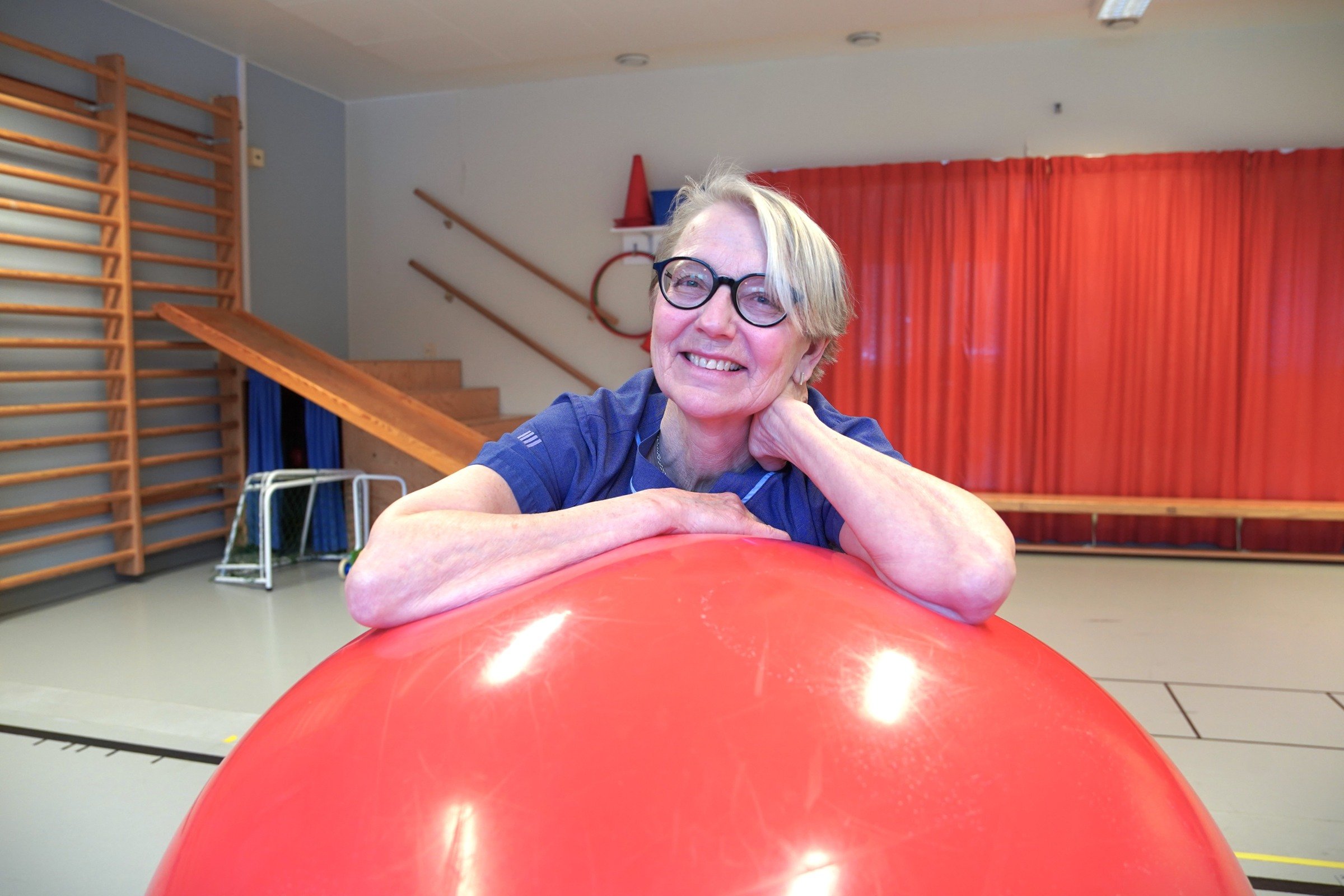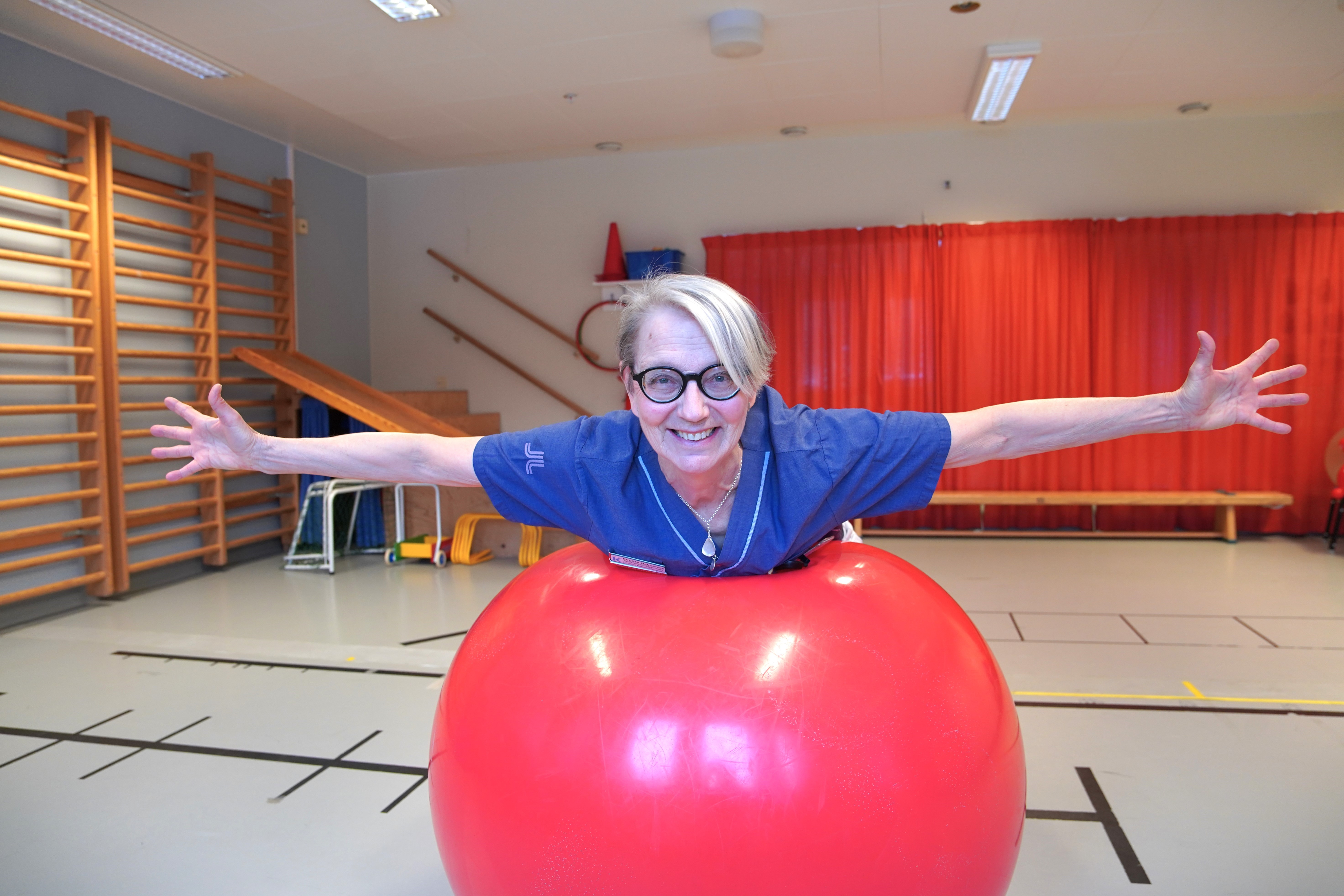Birgitta received one of Karolinska's first specialist positions for physical therapists

Birgitta Helmerson meets us at R42/44, the Physiotherapy Clinic in Huddinge. Her name badge reads "physical therapist," a title she has held since 1982. After spending a year in a day and weekly care department at Tumba Hospital, she was employed by Karolinska University Hospital in 1983. Since then, she has remained loyal to her profession—now officially recognized as "physiotherapist"—as well as her workplace. She is likely one of the longest-serving employees at the hospital and certainly one of its first specialist physical therapists.
"I have always been interested in people, how arising issues affect them physically and mentally, and how they react. Most of the patients I met in rheumatology and orthopedics were in pain. Therefore, it felt natural after a few years to further my education in pain and pain relief. I received my position as a specialist physical therapist at the hospital in 2001," says Birgitta Helmerson.
Complex Pain Conditions
She describes her encounters with patients, some of whom have very complex pain conditions, as particularly meaningful. Although it has been physically demanding at times, she feels primarily a deep sense of gratitude.
"I have truly had the opportunity to deepen and develop my knowledge. Pain is very individual, and chronic pain can be difficult to treat and, above all, challenging for some individuals to manage. It requires experience and the ability to consider the patient's entire life situation to provide the best possible treatment/coaching," says Birgitta Helmerson, elaborating:
"For this patient group, it's crucial to have access to multiple professional disciplines, and treatment after hospital care is most effectively carried out in multiprofessional rehabilitation within primary care or at rehabilitation clinics."

Today, Karolinska University Hospital boasts around seventy specialist physical therapists across a variety of specialty areas – a clear example of the profession's development in terms of structured competence.
"Within Karolinska, which has a highly specialized care mission, it's crucial that we possess high competence at all levels, including as physiotherapists. It's important that we keep up with development and learning and are involved in and conduct research within our profession. Currently, there are about 40 PhD-educated physical therapists at Karolinska. Ultimately, we are here for the patients, and they are entitled to the best care," she explains.
Specialization in Psychotherapy
Birgitta Helmerson is also one of the driving forces behind the headache school at the hospital for patients with severe migraines. She has long had a special focus on whiplash-related issues: neck-related headache, facial pain, and temporomandibular joint pain.
"In the headache school, they learn more about headache disorders, how stress affects them, and work on self-management. An important component is training in body awareness and relaxation techniques."
The close connection between the body and mental well-being became clear to Birgitta Helmerson early on. For nearly twenty years, she has also been a qualified psychotherapist.
"My specialization in psychotherapy has given me tools to more structurally explore the patient's life world; their thoughts, feelings, behaviors. This has made it easier to meet each individual based on their circumstances, even in difficult situations."
Alongside her work with patients, Birgitta Helmerson lectures, teaches, and mentors. Currently, she is also working on processing and analyzing interviews conducted after completing the headache school.
Do you enjoy working?
"Yes, absolutely. The most enjoyable part is meeting patients, mentoring and coaching colleagues, and seeing them develop and grow. Lecturing at various levels for different professions and sharing and discussing all the knowledge I've accumulated over the years is incredibly rewarding."
She has always felt strong support and encouragement in her professional role, with constant opportunities for development and interesting tasks. This, along with a strong sense of community, is a major reason she has stayed at Karolinska for nearly 41 years.
"Then, I suppose I have a bit of my own drive which has been positive and helpful, for the most part."
You turned 65 in December.
"That's right. But I don't feel done here. Now I'm working 50 percent and in that way, I get the best of both worlds. Plenty of leisure time with the family and the new puppy, while still having a fantastically stimulating work environment."
______________________________________________
Text and photo: Nneka Magnusson Amu.